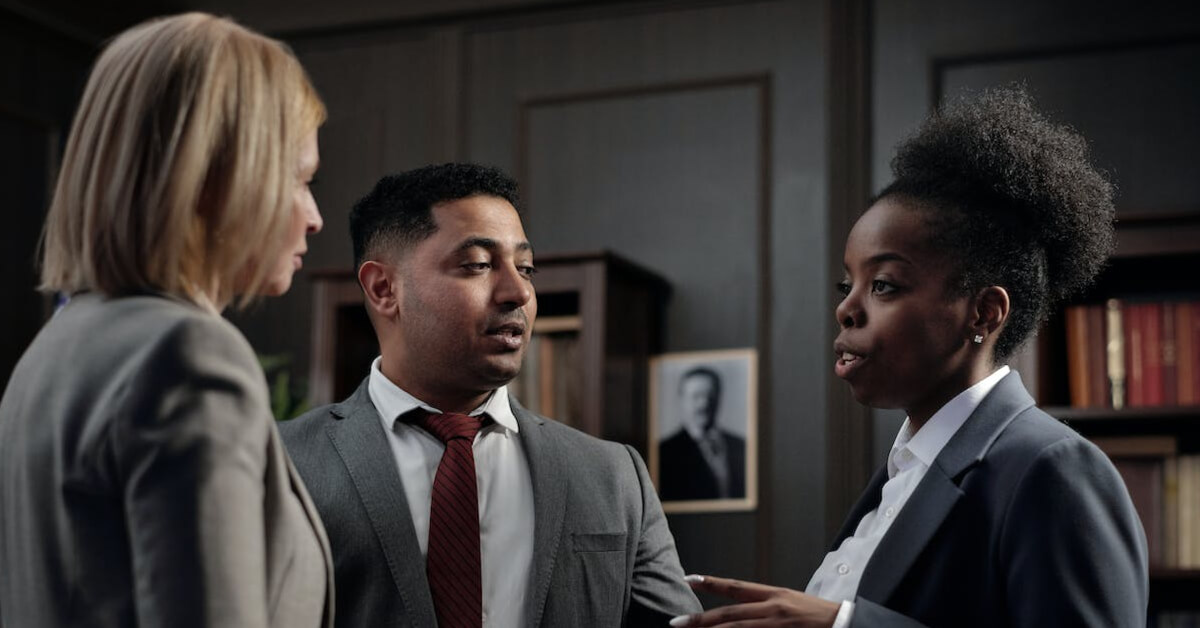Venturing into the world of visas and immigration can often feel like stepping into a labyrinth. The complexity increases when you face visa refusals, which can feel disheartening and overwhelming. But there’s a guide that can help you navigate this maze: a lawyer specialising in visa refusals.
Our client John, faced with a visa refusal, turned to our immigration lawyers for help with our expert team, we carefully analysed John’s case and provided the support he needed with extensive knowledge of visa refusal cases and immigration law played a crucial role. Our expert lawyers reviewed John’s application, identified gaps, and gathered additional supporting documents. John’s visa refusal was successfully overturned. The team’s exceptional support and strategic approach transformed a situation of uncertainty into a success story.
In this article, we’ll explore the role of a lawyer in tackling visa refusals, how they can help, and why you might want to consider hiring one.
Understanding Visa Refusals
Visa refusals or denials can be quite a shock, especially if you’ve been preparing for a long time. In simple words, it means the immigration authorities have decided that your application doesn’t meet the requirements for the visa you applied for. This can be due to a lack of enough documents, not having enough money to support yourself, having health or safety issues, or having problems with visas in the past.
Why Visa Refusals Occur
Sometimes, visas are refused for reasons that might seem hard to understand. But it is essential to know that the officers reviewing your application have to follow certain rules. Here’s a list of common reasons for Australian visa refusal:
- Incomplete or Incorrect Application: Filling out the visa application incorrectly or failing to provide all the required information can lead to a refusal. Double-check your application to ensure it’s complete and accurate.
- Insufficient Supporting Documents: Not providing the necessary supporting documents or failing to meet the required standards can result in a visa refusal. Make sure to include all required documents and ensure they meet the specified criteria.
- Failure to Meet Health and Character Requirements: If you have a medical condition that could pose a risk to public health or if you have a criminal history, your visa application may be refused. Meeting the health and character requirements is essential for visa approval.
- Lack of Genuine Temporary Entrant (GTE): Australian student visas require demonstrating a genuine intention to stay temporarily for educational purposes. If you fail to convince the authorities of your genuine intentions, your visa application may be refused.
- Financial Insufficiency: Inability to demonstrate sufficient funds to cover tuition fees, living expenses, and other costs during your stay can result in a visa refusal. Ensure you provide evidence of adequate financial resources.
- Overstaying a Previous Visa: If you have a history of overstaying a visa in Australia or any other country, it can negatively impact your current visa application.
- Employment and Immigration History: Your previous employment and immigration history can be considered when assessing your visa application. Any discrepancies or concerns may result in a visa refusal.
How to Appeal Visa Refusal
- Review the Reasons for Refusal: Carefully examine the reasons provided for the visa refusal. Understanding the grounds on which your application was rejected will help you address them in your appeal.
- Seek Legal Advice: Consider consulting with an immigration lawyer or registered migration agent experienced in visa appeals. They can provide expert guidance on your options and help you prepare a strong appeal.
- Collect Supporting Documents: Gather any additional evidence or documents that strengthen your case. This may include financial records, employment contracts, letters of support from employers or family members, and any other relevant documentation.
- Prepare a Detailed Statement: Write a comprehensive statement explaining why you believe the visa refusal decision was incorrect. Address each of the reasons for refusal systematically and provide evidence to support your arguments.
- Lodge Your Appeal: Follow the instructions provided by the Department of Home Affairs for appealing. Make sure to submit all required documents and pay any necessary fees within the specified timeframe.
- Attend the Hearing (if applicable): In some cases, you may be required to attend a hearing to present your case orally. Prepare thoroughly for the hearing and be ready to answer questions from the tribunal members.
- Stay Informed: Keep track of the progress of your appeal and any communication from the Department of Home Affairs or the Administrative Appeals Tribunal (AAT). Respond promptly to any requests for additional information or documents.
- Consider Alternative Options: If your appeal is unsuccessful, explore alternative visa options or avenues for review. Your immigration lawyer or migration agent can advise you on the best course of action based on your circumstances.
Need a Lawyer?
The Role of a Lawyer for Visa Refusals
Here is where a visa refusal lawyer comes in. This person is a professional who knows all about immigration rules and how to deal with visa applications. They can help you understand why your visa was refused and guide you on what to do next. They can tell you what changes you need to make in your application, what extra documents you might need, and whether you should reapply or appeal the decision. And if an appeal is needed, they can represent you in front of the authorities.
Why Hire a Lawyer for Visa Refusals
Dealing with a visa refusal can be very upsetting. But don’t worry, hiring a visa refusal lawyer can help you overcome this. They know all about immigration rules, have dealt with cases like yours before, and can guide you through the process. Plus, knowing that a professional is taking care of things can give you some relief and let you focus on other things in your life.
The Role of a Lawyer in the Appeal Process
If you need to appeal the decision, a visa refusal lawyer can be very helpful. They can write the appeal letter, explain why the refusal should be reconsidered, and represent you during any hearings. This can be a big help because they know how to present your case in the best possible way.
How to Choose the Right Lawyer for Visa Refusals
It’s crucial to find a lawyer who is right for you. This means considering things like their experience, how well they communicate, how much they charge, and what others have to say about their work. It’s always a good idea to do your research and pick a lawyer who will best suit your needs. Remember, this person will be a big help in your journey to getting your visa approved.
Contact Walker Pender Group today. Our experienced lawyers are ready to assist you in navigating the complexities and challenges of visa refusals. Let us help you overcome obstacles and achieve a positive outcome. Reach out now to discuss your case!



